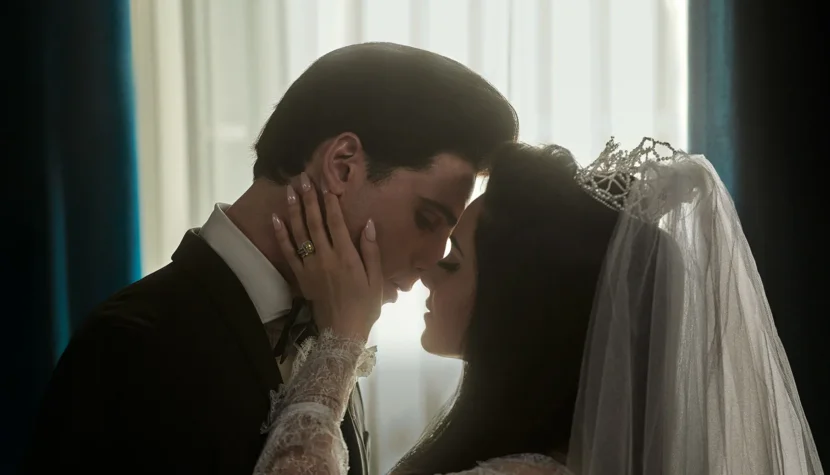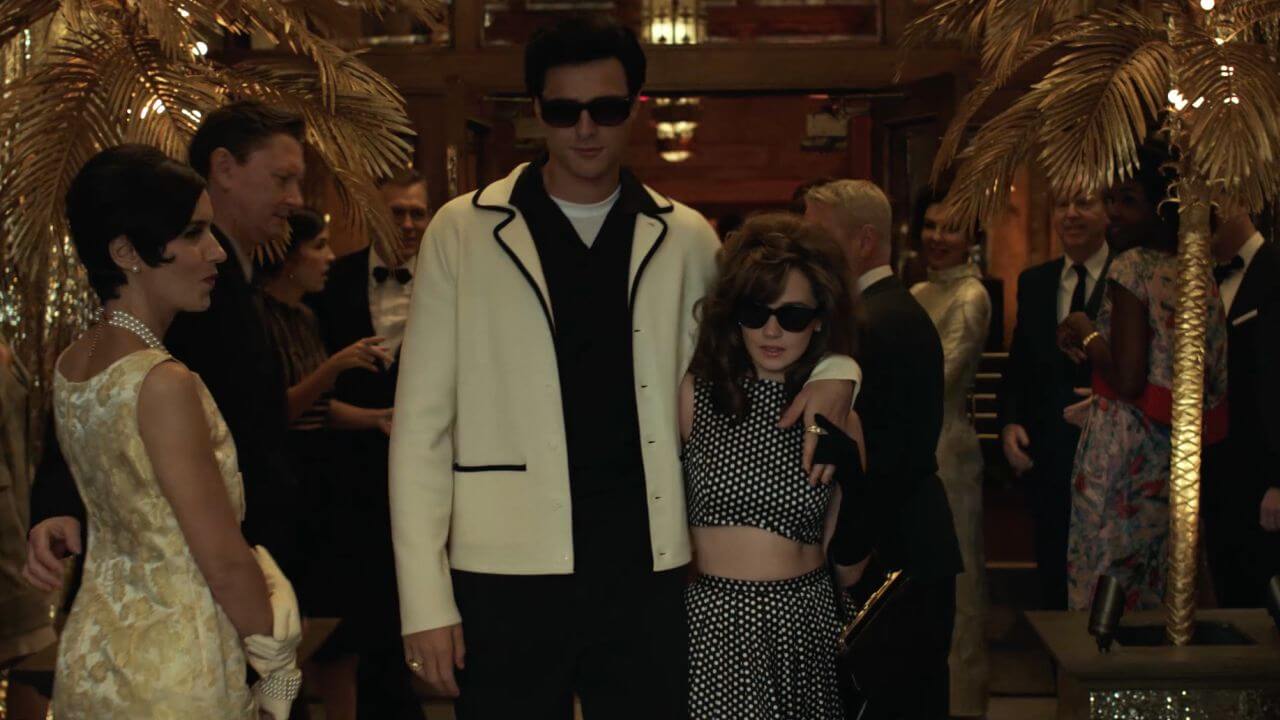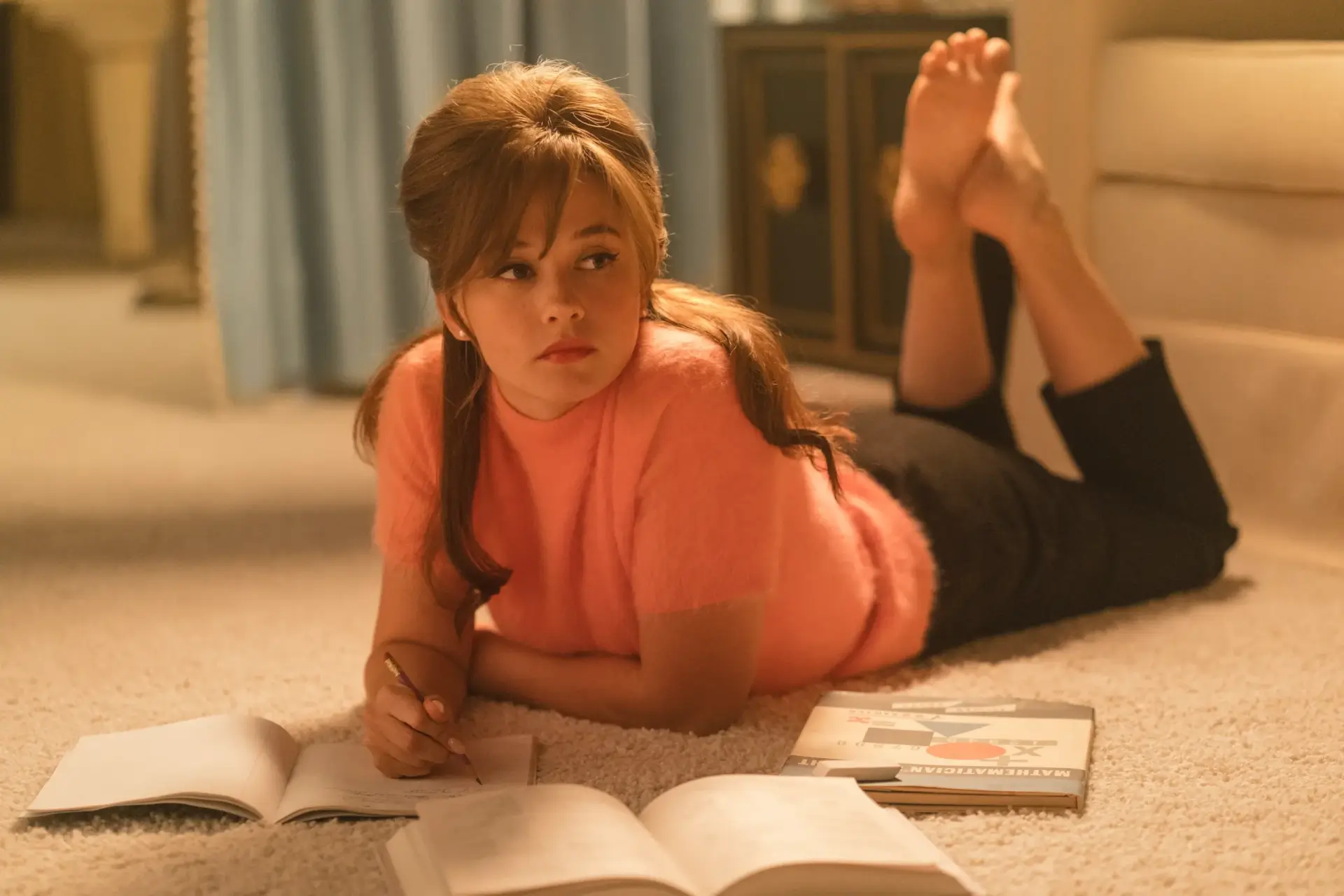PRISCILLA. (Un)sweet and (un)cinematic tale [REVIEW]

Sofia Coppola’s workshop stands in the same league as giants like Nolan, Scorsese, or Fincher. It’s just a shame that she didn’t choose a more gratifying subject matter. Priscilla on the film side makes a huge impression – the problem is that it’s rather uninteresting.
Elvis Presley and Priscilla Ann Wagner: at this point, it’s practically a mythologized story, full of half-truths, lies, and many gossipy legends. It’s no wonder that Coppola decided to tackle a somewhat more objective account of their relationship, based on Priscilla’s perspective drawn from her autobiographical book. And this is a film that, to some extent, succeeds in that endeavor. The two young actors, Cailee Spaeny and Jacob Elordi, excel as a couple whose approaches to life and their relationship were so different that their relationship never had a chance. Loving and hurting each other, they give us a display of intensely allusive and precise acting, from their coup de foudre to the gradual breakdown of their dysfunctional marriage.
Additionally, Sofia Coppola doesn’t shy away from the truth. From the first minutes, we feel a sense of ambivalence because we learn (a fact previously unknown to all) that Presley met Priscilla when she was only fourteen years old. Their “real” relationship didn’t begin until several years later, but this revelation outlines the difficult (and innocent) position of Priscilla and the paternalistic role of Presley, who to some extent took advantage of the unsuspecting heroine of the film.

The ordeal of Priscilla is both visible and audible. At one point, you can even feel it in the way Cailee Spaeny intones (theoretically unimportant) greetings with her “beloved.” In her innocent “hello,” you can hear fear; she is practically terrified of every meeting with her musical prince, who turned out not to be a fairy tale. Furthermore, the film employs a cool framing that emphasizes the distance between our two protagonists. Even if Elvis and Priscilla were initially connected by something that could still be called love, the film proves to us that they did nothing to nurture these emotions. She tried, to some extent, for several good years. He locked her in his grand palace prison at Graceland, indulging in drugs, alcohol, affairs, and (partly) a declining career.
The stumbling block lies in the repetitiveness of the film’s themes: again, the motif of the girl in captivity, again Elvis, and once again (important in any case) an attempt to tell the same story but detached from binary narration. A noble and commendable undertaking, but it is not (and probably never will be) a cinematic narrative, regardless of who tells it and in what way. Even if we understand the aforementioned complexities in Priscilla’s life, their surrealism is overwhelming (it’s really hard to imagine what her relationship with Elvis really looked like), and their repetitiveness and monotony (a consciously applied effect) eventually stop engaging the audience. An indescribable sense creeps in that even though we are dealing with something meticulously thought out, in the final analysis, it ceases to interest us.

It’s also worth noting that Coppola’s mission doesn’t boil down to portraying Elvis as a “sexual predator.” She treats him with a bit more humanism than contemporary world-fixers who unilaterally decide to boycott his music and memory in today’s pop culture. Between the lines (sic!) and images, Coppola shows us that Presley’s aggressive behaviors didn’t come out of nowhere: a toxic father, the influence of his mother’s temperament, an exploitative environment, and the Colonel, who doesn’t even appear in the film (in fact, there are only telephone conversations with him, but we don’t hear his voice). We observe the film’s world strictly from Priscilla’s perspective – and from the very beginning, she realizes the terrible situation she got herself into. She doesn’t defend his actions but seeks to understand them. Elvis Presley was a corrupted product of both his misogynistic era and the unforgiving show business.
Coppola’s latest film offers many nuances to capture (especially those offered by editing), but the realism of this film (combined with a slightly journalistic touch) won’t hold up even if the actors and the director, who are geniuses in their craft, were changed, so this argument is inherently useless. Priscilla subtly and almost hallucinogenically depicts the distortion and subsequent breakdown of the Presleys’ relationship. You can appreciate this film for the many details that influence our perception of the two, but ultimately, we will forget about it within two weeks of seeing it.

